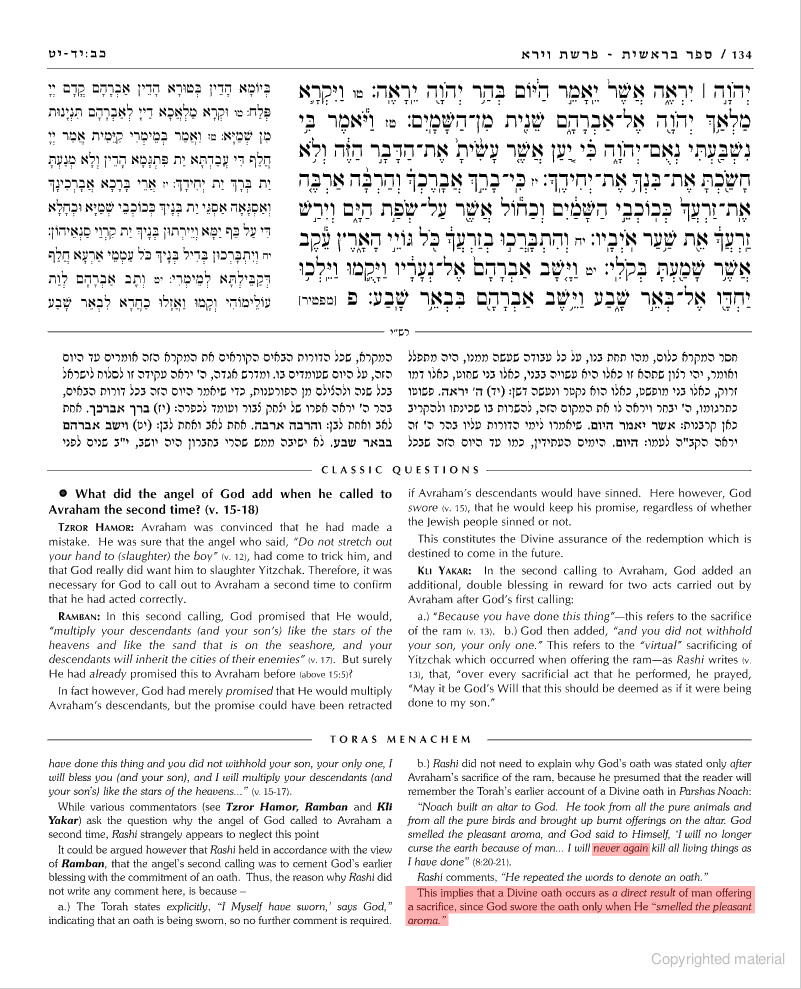"Many people use the phrase
"Never again!" when discussing
the Holocaust. For Elie Wiesel,
it's more than a phrase. It's
his life's mission."
- The
Toledo Blade, October 18,
2008
A memorial at Dachau with "NEVER AGAIN"
written in several languages
Then Noah built an altar to
the LORD and, taking some of all
the clean animals and clean
birds, he sacrificed burnt
offerings on it. The LORD
smelled the pleasing aroma and
said in his heart: "Never
again will I
curse the ground because of man,
even though every inclination of
his heart is evil from
childhood. And never
again will I
destroy all living creatures, as
I have done. —
Genesis 8:20-21 (NIV)
Salomon Isaacides, commonly known by
the acronym of Rashi, was the hugely
influential 11th century (AD) French
rabbi, whose commentary on the
Babylonian Tamud has been included
in every print of the Talmud for
almost 500 years. He also wrote a
commentary on the Tanakh (Jewish
Bible), in which he stated of the
Jewish god using the phrase "never
again" twice in Genesis 8:21:
He repeated the words to denote
an oath
So the much used phrase "never
again", has religious significance
to Jews, it was an oath made to them
by their god. But even more
revealing was something written by
Menachem Mendel Schneerson, known as
the Rebbe, the leader of the hasidic
Chabad Lubavitch cult, and hailed by
his powerful followers
as the long awaited Jewish messiah
(although he died in 1994, they are
expecting him to come back—somehow).
Schneerson wrote a commentary on
Rashi's commentary of the Torah
(included in the Tanakh), he stated
of Rashi insight above:
This implies that a Divine oath
occurs as a direct result of man
offering a sacrifice, since God
swore the oath only when He "smelled
the pleasant aroma."
So according to the Rebbe, before the
the Jewish god will make a Divine oath,
he requires a sacrifice, a burnt
offering, a holocaust.
Miller, Chaim.
Chumash:
The Book of Genesis. The Gutnick
Edition New York:
Kol Menachem. 2008.
p.134




































